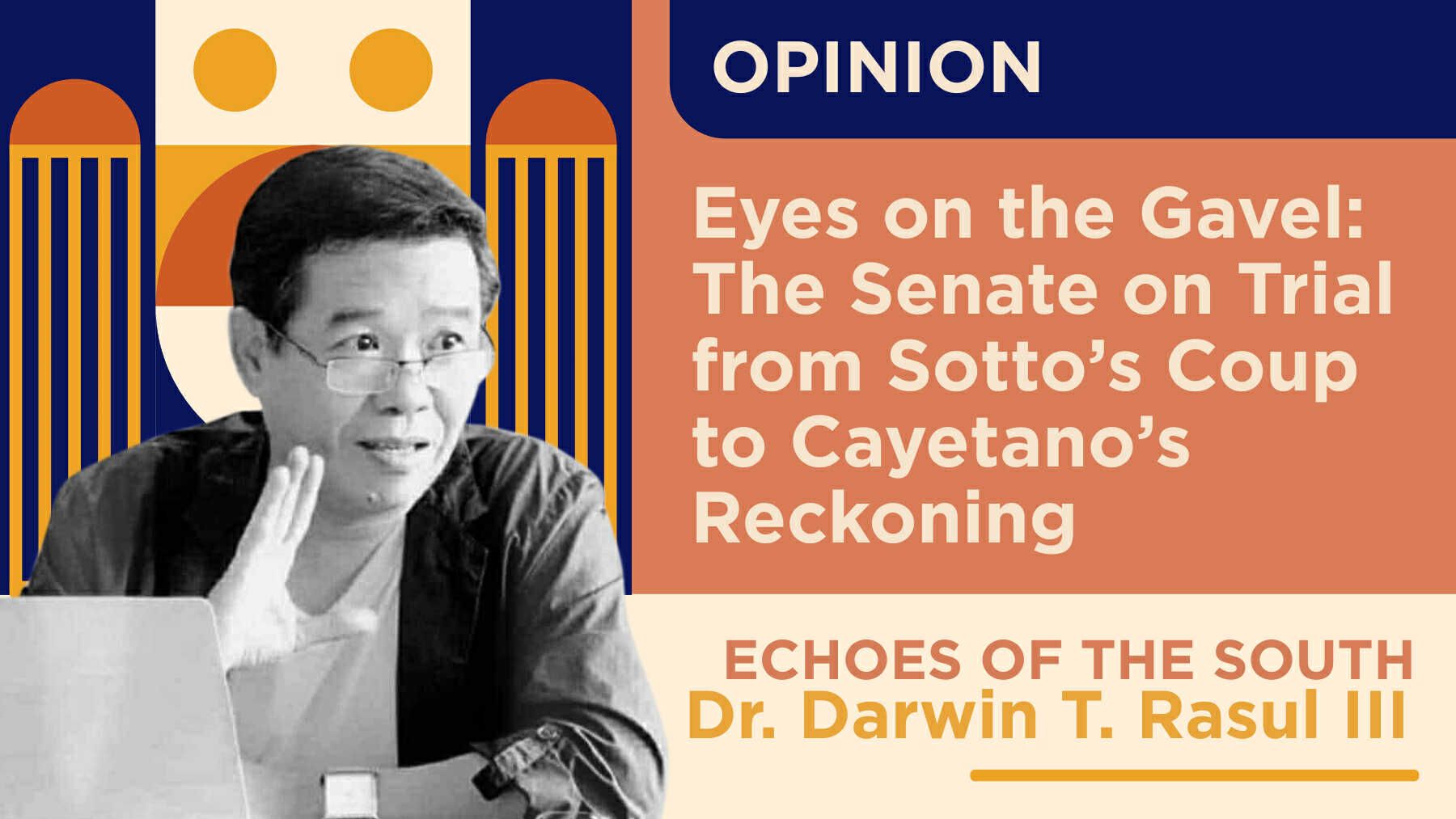Rumors are circulating in political circles that Minority Leader Allan Peter Cayetano may already have the numbers to mount a bid for the Senate presidency — a move that could unseat Senator Tito Sotto, who won the post only last week through a "coup". Are we staring down the prospect of another Senate “regodon”?
The Philippine Senate is no stranger to scandal, yet rarely has the chamber been subjected to scrutiny so intense and so corrosive. The flood-control controversy has cracked its veneer of respectability and exposed how public funds were diverted, thus implicating not only shadowy contractors but some sitting lawmakers, according to testimony now public, . The institution’s credibility, long fragile, now hangs in the balance.
At the center of this storm is Senate President Tito Sotto, a political survivor with decades in the public eye and a record of weathering storms. But this is different as the stakes are institutional: will the Senate act as an independent check against corruption, or will it be remembered for shielding its own?
Consider the Discayas, the family of contractors who turned whistleblowers in the flood-control case. They came forward with testimony that critics say was selective — recalling the misdeeds of political opponents while overlooking the faults of allies from previous years. Their accounts, opponents argue, displayed inconsistencies and self-interest; to grant unconditional protection to witnesses of that type, some contended, would risk rewarding partial truth-telling.
By contrast, the case of Engr. Brice Hernandez has been handled differently. Hernandez spoke openly and named senior figures; his camp has since asserted that he received serious threats after testifying, and his lawyers sought remedies to protect him. The Senate’s decision to move him from police custody to Pasay City Jail, and the debate that ensued around that transfer, underscored a difficult judgment call: protect a witness who has named powerful figures, or risk the impression that whistleblowers will not be safe.
Sotto’s choice to support the transfer has been read in two ways. Critics say it was political calculation; supporters call it a principled act to protect those who tell the whole story. Beneath both readings is a harder truth: every Senate decision now chips away at or reinforces the chamber’s legitimacy. The Senate cannot credibly demand accountability from presidents, generals, or cabinet members if it refuses to apply the same standard to its own.
A separate but equally corrosive problem is perception. Sotto has been accused by some critics of being too close to the House leadership and the executive branch, a charge that colors how his actions are judged. Senate President Pro Tempore Panfilo “Ping” Lacson has publicly reminded Sotto not to disregard the minority bloc and to remember that he presides over the entire Senate, not only the majority. Lacson warned that the majority’s hold is narrow, but narrow margins can be dangerous for leadership. In fact, he half-jokingly remarked that “tomorrow or the next day” Sotto himself might be ousted.
That warning now meets political reality: the camp of Cayetano is already believed to be maneuvering to test Sotto’s fragile grip, turning the same coup that returned him to power into the very stage for his possible reckoning.
Restoring trust will not come from rhetoric; it will require hard, painful choices like disciplining colleagues when warranted, resisting political alliances that undercut independence, and enforcing consistent standards. This is no longer a question of institutional balance; it is a question of survival. If the Senate falters now, its moral authority will evaporate.
For Sotto, personally, this is a defining moment. He can show that he places the institution above partisan convenience, or he can allow the chamber to be perceived as an extension of other centers of power. History will judge him not by speeches but by whether he allows truth and accountability to proceed even when they harm his peers. The flood control scandal is not just about billions lost to corruption; it is about whether the last institutional bastion of accountability in Philippine democracy still stands.
If Sotto rises to the occasion, he may yet redeem the Senate. If he fails, then this chamber will not just be under siege — it will have surrendered. And here lies the complication: many believe his very return to the Senate presidency was engineered through a “coup” blessed by Speaker Martin Romualdez. Reports point to Sotto’s own admission of consultations with the Speaker before Escudero’s ouster, fueling suspicion that the Senate’s independence is already compromised. That link could determine whether Sotto is remembered as a guardian of the institution, or merely its caretaker, installed to serve another branch of power.
There is one final, practical point: the chamber’s arithmetic. Observers, and some former officials who voiced concern publicly, note that the new majority is slim, and that a well-timed realignment could unseat a Senate president. If a challenge succeeds, Sotto’s tenure could end up among the shortest in recent memory. For now, the Senate is on trial: from Sotto’s coup to Cayetano’s reckoning, with their eyes firmly on the gavel.︎
#WeTakeAStand #OpinYon #OpinYonNews #EchoesoftheSouth

